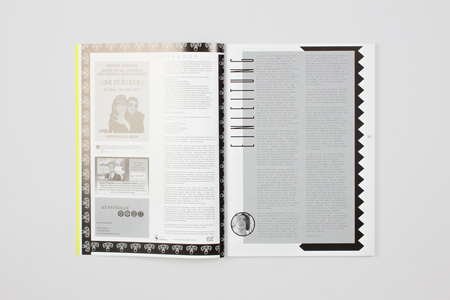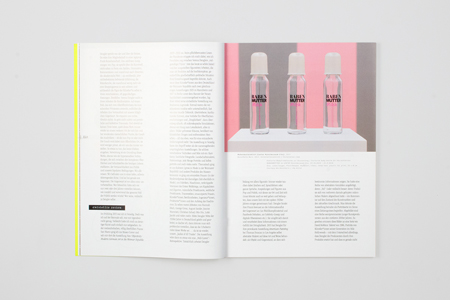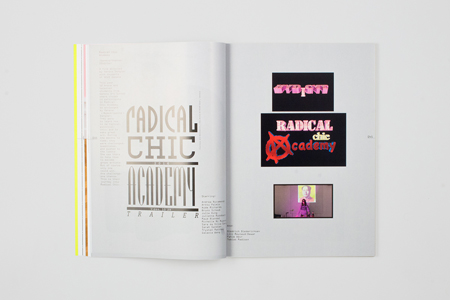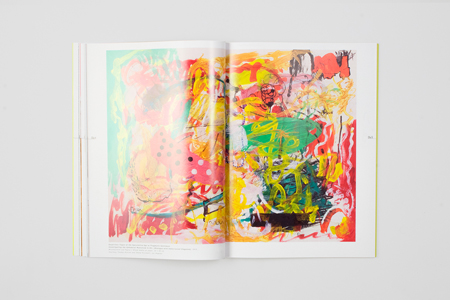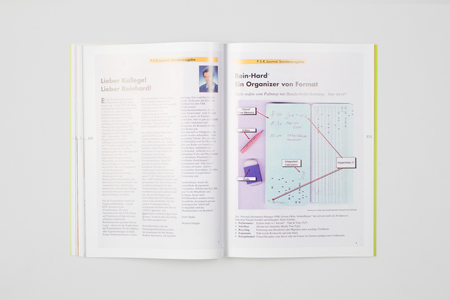An overview of the various socio-political themes addressed by the Austrian artist's work.
“Dengler's oeuvre is also about trauma, both personal and collective, and although it offers no consolation whatsoever, another place where it investigates the meanderings of the human psyche is the shrink's—pop or not—sofa. Thus it makes this particular place more public, or less private, than we assume it is. Doing all that, means taking some risks. Confusion is a foundation of this work, of its hypersensitive connection with the epidermic complexity of contemporary life, the reversibility of politics, our bipolar moods.”—
Lili Reynaud-Dewar
Verena Dengler approaches a broad array of themes: she takes up, misappropriates and reevaluates codes of right-wing extremists in her work with the Hysteria Fraternity in Vienna, she takes on taboos such as “regretting motherhood,” and approaches her own personal family relations and assigned roles within them. She does all this in a humorous manner, aware of how problematic it is to demand that art be politically effective, also and especially in a time when ongoing responses to current topics are asked for. This book takes up Verena Dengler's exhibition at Kunsthalle Bern. Split in two, one part of the publication is on the work of Verena Dengler, the other on HC Playner, who was invited by Dengler to exhibit in the main room at Kunsthalle. Included are excerpts from the artist's diary between the ages of ten and twelve, an extensive essay on Dengler's work by Lili Reynaud-Dewar, and a text on how Stefanie Sargnagel first met HC Playner at a garden party. With an introduction by Valérie Knoll.
Published following the eponymous exhibiton at
Kunsthalle Bern in 2017.
Born 1981, Verena Dengler lives and works in Vienna.


